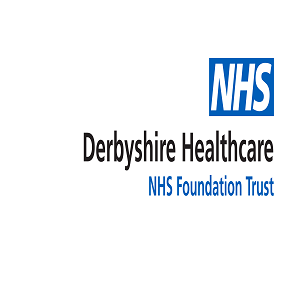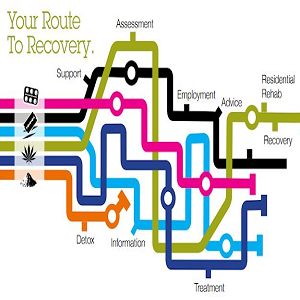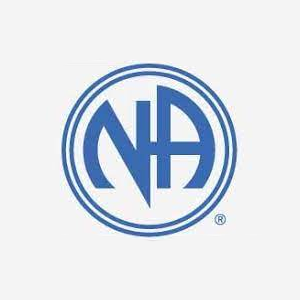Drug & Alcohol Rehab in Derbyshire

How Does Rehab Work?
Rehab involves the support services and therapies that individuals with drug and/or alcohol addiction receive to overcome addiction and subsequent relapse. When a medical assessment and detox are completed, individuals will start addiction treatment in the form of therapy. Treatment consists of therapy from a qualified counsellor, the attendance of group meetings as with a 12 Step programme, and the option of inpatient or outpatient rehabilitation. residential rehab services require that clients live at the residence or centre for the duration of therapy. Outpatients will attend therapy by counselling or meetings but will not stay at the facility. Consultation with a medical expert plus an individual assessment can help determine whether inpatient or outpatient services are suitable for your needs.
What Happens During Residential Rehab?
Entering rehab is the initial step towards sobriety. Whilst the journey can be tough, it really is possible to avoid relapse. You could feel anxious about the process, so allow us help you by taking a closer look at what to prepare for during rehab.
Rehabilitation starts off with an assessment performed by a skilled medical professional. The goal is to investigate your history of substance misuse, and whether pre-existing medical conditions are present. This includes any comorbidities such as mental health disorders that require specialised treatment.
An assessment is followed by detox. Detox is a formal process and is performed by a residential rehab or at home with guidance from a medical professional (outpatient services). During this period, individuals abstain from drugs and/or alcohol use until the drug/alcohol is no longer present in the system. Because of the challenges associated with withdrawal, a medically supervised detox from drugs and alcohol is advised.
Therapy is an important part of rehab and every aspect of treatment should be tailored to address individual backgrounds, addictions, and circumstances. Interventions can range from private counselling and cognitive behavioural therapy to developing coping mechanisms, life skills, and attending group meetings.
1. Assessment

A complete medical assessment is the first step to receiving the appropriate treatment in rehab. If you are looking into residential rehab, you can expect a telephone assessment by an admissions coordinator. The telephone assessment will provide the treatment facility with the information needed to develop a unique treatment plan. The medical support staff will also have the information to manage individuals through the process of detox.
To help you or someone you know, receive the best possible therapy for addiction and substance use, it is important to receive an individual assessment by a dedicated professional. The assessment will aid the direction of therapy including treatment for people with comorbid illnesses such as anxiety.
2. Detox

Detox is a process in which substances such as drugs and alcohol are safely removed from the body. It is coordinated by professionals in a rehab centre.
Detox is important where substance misuse and addiction are present. It should be managed by experienced and knowledgeable medical staff to limit uncomfortable and severe withdrawal symptoms. For those who go through withdrawal, there is a higher risk of relapsing if not managed within a treatment clinic. In a residential setting, qualified staff may offer detox medication to minimise uncomfortable withdrawal. The approach for therapy, once detoxification is finished, is determined by the assessment.
3. Therapy

Therapy involves the one-on-one and group sessions you will attend with a qualified therapist, counsellor, and support staff. Treatment is provided in both a residential rehab and an outpatient service. The direction for therapy will depend on individual needs.
Step by Step Process for Residential Rehab
To understand your medical and mental health history.
Arrange a suitable date to begin your journey to recovery.
Begin the managed withdrawal process from substances including alcohol.
To understand the root cause of addiction and how to overcome it.
Aftercare is provided to help manage the risk of relapse.
To help heal the wounds that addictive behaviour has caused others.
Find your Nearest Rehab Centre in Derbyshire
The nearest rehab centre is Derby Drug and Alcohol Service.
Address: Derby Drug and Alcohol Service, St Andrews House, 201 London Rd, Derby DE1 2TZ
Call 0333 4444 432 to discuss your alcohol or drug rehab requirements and any other questions you may have about the process of residential rehab.
Outpatient Addiction Services in Derbyshire
When you look for a treatment programme, it will be influenced by the nature of the addiction and your budget requirements. Individuals who enter an inpatient or outpatient programme will need to give their full commitment to get the most out of treatment. We explore the strengths and weaknesses of outpatient services compared to residential rehab.
An outpatient service does not require you to remain at the centre for treatment. If you have work, family, or other commitments, outpatient services allow you to concentrate on these commitments while visiting a clinic or counsellor to receive addiction counselling and other support services.
If you are interested in receiving outpatient care, it is important to find the right programme for your needs. Outpatient services range from paid private counselling to free charitable organisations specialising in substance dependence.
NHS Free Addiction Services in Derbyshire

Suite 101, Thomas Henry House, 1-5 Church Street, Ripley, Derbyshire DE5 3BU
Website
Space @ Connexions Curzon House 8 Curzon Street Derby Derbyshire DE1 1LL
Website
St Andrew House 201 London Road Derby Derbyshire DE1 2TZ
WebsiteThe Benefits of Outpatient Services
Private Outpatient programmes will include individualised care strategies to address the specific problems and challenges that are leading to addictive behaviours. Outpatient assistance is commonly sought by those who have families to take care of or those who need to work full-time. Outpatient programmes are more cost-effective than residential treatment.
The Challenges of Outpatient Services
Because one remains in the same environment and exposed to the same triggers, there is a higher risk of relapse and failure to complete the outpatient programme. Although the NHS and other UK-based charities provide free addiction services, treatment is not tailored to the individual’s needs and waiting lists are to be expected.

How Much Does Rehab Services Cost in Derbyshire?
Residential drug and alcohol rehab can typically cost between £1500- £4000 a week. Private addiction treatment within a residential setting may not be financially viable for all. However, charity based and government organisations provide free or low cost services that those struggling with addiction can still benefit from.
The NHS and charities such as Turning Point provide free rehab programmes for those struggling with drug and alcohol addiction. It is important to note that Turning Point requires a self-referral. You will also find free support groups from Alcoholics Anonymous, Cocaine Anonymous, and Narcotics Anonymous very important for long term recovery from addiction.
Support Groups in Derbyshire

Shares, Steps, Traditions & JFT Group
St Osmunds Church London Road Derby Derbyshire DE24 8UW

Alfreton
Christ the King Church, 104 Nottingham Rd DE55 7GL

Belper Online
The Cottage Project Methodist Church, off Chapel St DE56 1AR
The Pros and Cons of Seeking Treatment in Your Local Area
Pros
1. You are familiar with the area which may provide a layer of comfort/safety.
2. Loved ones can easily travel to visit or are close by.
3. You may save on the costs of travelling long distances for addiction treatment, or free services may only be offered in your area of residency.
Cons
1. A local environment means access to drug dealers or other triggers. This is more of an issue if you decide upon outpatient programmes.
2. Failing to consider locations outside your area could equate to missed opportunity for more valuable and rewarding programmes.
3. Addiction treatment services that are close by don’t always offer the best standard of rehab.
If you are unsure of how to look for a rehab service you can trust, consider the CQC. The CQC website offers listings of rehabilitation services and organisations that are ranked according to the standard of its services.
